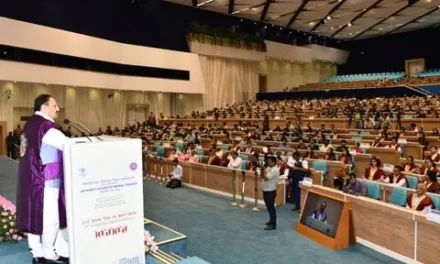Delhi, 9th September 2024 — A travel-related case of Mpox (previously known as monkeypox) has been confirmed in India, with laboratory testing verifying the presence of the West African clade 2 virus. This isolated case, like the earlier 30 cases reported in the country since July 2022, is not part of the ongoing public health emergency declared by the World Health Organization (WHO), which is currently focused on clade 1 of the Mpox virus.
The patient, a young male who recently returned from a country experiencing ongoing Mpox transmission, is currently receiving care at a designated tertiary care isolation facility. According to the Ministry of Health and Family Welfare, the patient remains clinically stable and has not exhibited any severe symptoms or systemic illness.
This case follows earlier assessments of the disease, and health authorities are managing the situation based on existing protocols. Public health measures, including contact tracing and monitoring, have been promptly initiated to prevent any potential spread. Officials have reassured the public that there is no immediate risk of transmission from this case.
As per the Ministry, the situation remains contained, and active monitoring will continue until the patient recovers. The public is advised to remain calm and follow standard hygiene practices as the risk of widespread infection is currently minimal.
Ongoing Surveillance and Public Health Measures
The Indian health authorities have maintained robust surveillance for Mpox infections, particularly following the earlier cases linked to the West African clade. While this clade is known to cause milder disease compared to clade 1, experts are continuously reviewing protocols to ensure preparedness against any potential outbreaks.
Given that the current global public health emergency pertains to clade 1, which has been more prevalent in regions beyond West Africa, the isolated detection of clade 2 in India is not expected to prompt heightened public health alerts. However, travelers returning from affected countries are being closely monitored, and any suspected cases are isolated as a precautionary measure.
Conclusion
As the global health community remains vigilant against Mpox, particularly clade 1, India’s public health system has demonstrated its readiness to manage and contain isolated cases of the virus. With comprehensive public health strategies in place, officials continue to prioritize the safety of the population, emphasizing that the current case poses no immediate threat to public health.
For updates, the public is encouraged to follow official advisories from the Ministry of Health and Family Welfare.










